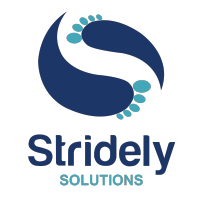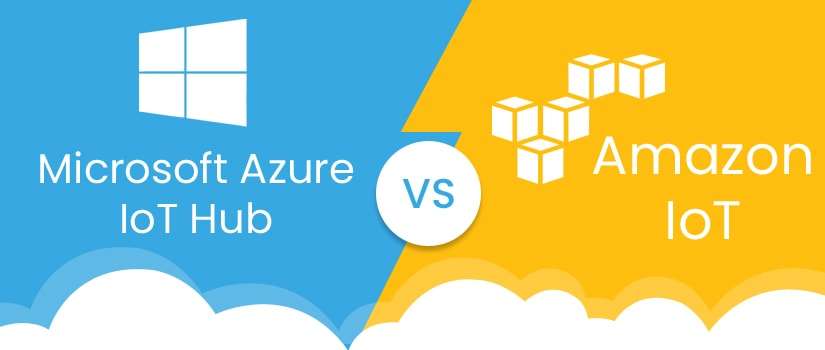IoT is ruling the technology hype cycle aiming to help business entities achieve connected enterprises. IoT is combined with Analytical solutions are helping enterprises solve critical business challenges such as Real-time analytics, sensors integration, maximum asset utilization, real-time supply chain visibility and many more. Among the many available IoT service providers, Amazon AWS IoT and Microsoft Azure IoT Hub are the top providers.
Both offer quality services to help enterprises in achieving their business goals. However, there are certain points which makes them different from each other. I would like to show you some important points to consider before choosing between them.
Also Read: 10+ RPA and Machine Learning Use Cases that might Interest your Enterprise
The IoT Hub
One of the strongest tools in the Azure is the IoT Hub. Azure IoT Hub provides simple, secure and bidirectional communication between IoT assets and the cloud. Now the question comes is, are IoT Hub from Microsoft a better reliable choice than the Amazon one? Mainly it’s the broad support for interfacing with other programs that are directly into the system. This cuts down significantly on the amount of custom programming that’s necessary, which means faster and more cost-effective development.
SDK and Language Support
Amazon IoT doesn’t have broader support for SDKs and languages than the Azure IoT. AWS IoT supports C and NodeJS while Azure IoT also provides. Net, UWP (Universal Windows Platform) and Java support. This means that it is more likely that the current programmers will be ready to create new codes to use in the IoT project.
Service Fabric for Low Latency
Azure Service Fabric is a groundbreaking approach to micro service-based applications. In other words, these are exactly the types of applications that are suited for IoT implementations. As it eliminates a lot of coding things and maintains the development process. It also ensures the lowest latency performance as compared to Amazon.
AMQP Support
The Advanced Messaging Queuing Protocol is an open successor and the ultimate replacement for proprietary messaging middleware. It is one of the most reliable and interoperable choices when it comes to messaging protocols, this a key feature in any IoT solution development. If we need to make use of AMQP then Azure IoT is the most preferable choice, as the AWS offering only supports HTTP and MQTT, as both are part of Azure.
Security
One of the greatest risk factors for enterprises is to secure the data. Hence, Azure has consistently been at the forefront of cybersecurity as compared to AWS. Big Data means maintaining big privacy concerns and with such massive streams of data passing through the system. Azure has a range of built-in safeguards and clear developer guidelines in the form of a Security Development Lifecycle to ensure that IoT apps keep the interest of all stakeholders safe.
As both Azure and AWS offers similar IoT technology components, Microsoft has been innovating at an incredible pace to top the competition. As there are many enterprises running CRMs and ERPs on Microsoft Dynamics AX platform, making Azure IoT the favored choice. Microsoft offers Azure IoT Suite that combines several services such as IoT Hub, Machine Learning, Stream Analytics, Notifications Hubs and Power BI to build powerful IoT solutions. These are the reasons that make Azure IoT stands-out as the most preferred solution of choice for both customers and enterprises.
So what are you looking for, anything in mind related to IoT Implementation we are here to help you with that.


